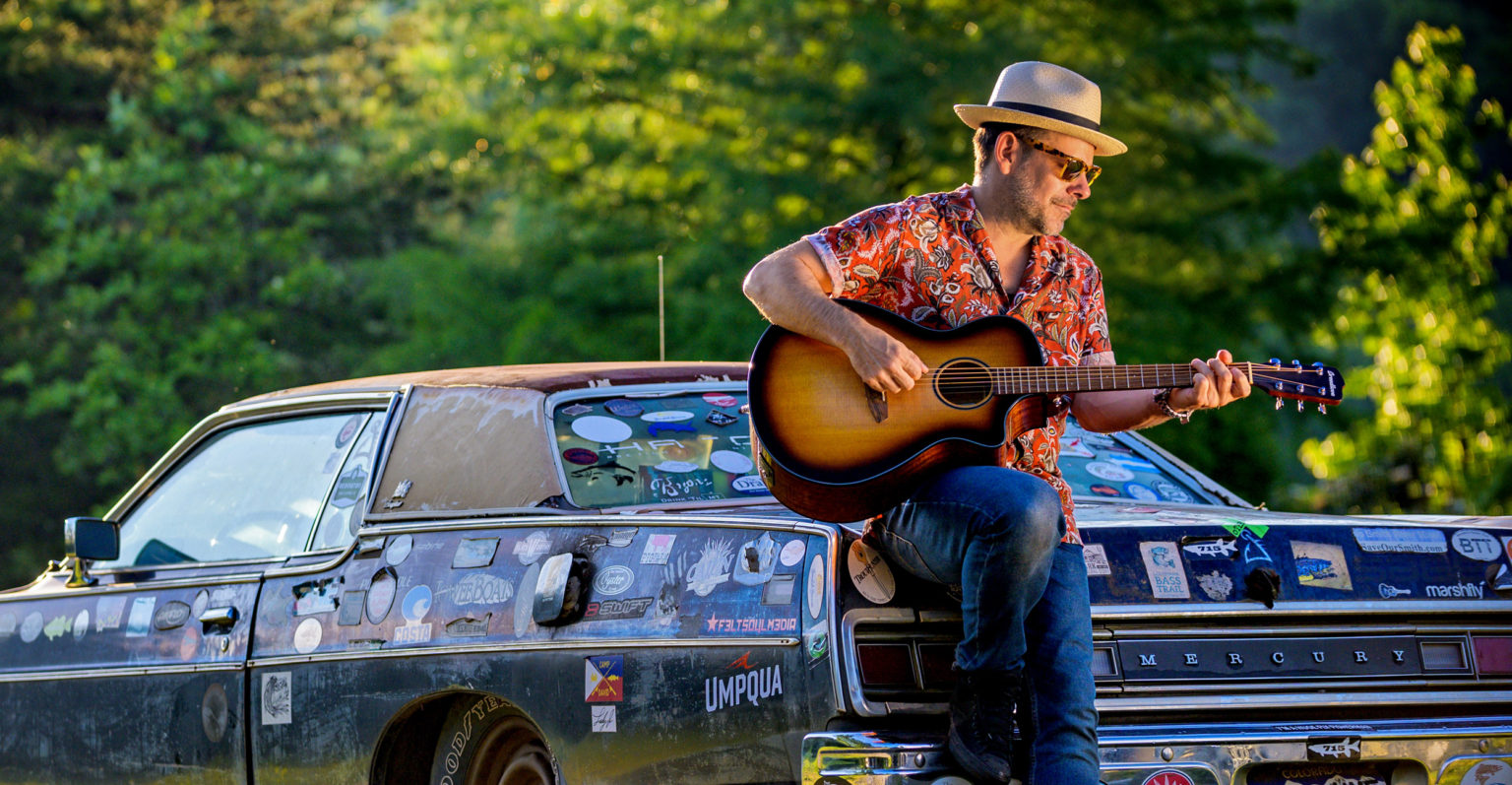
Meet Ford Thurston. You may not know Ford’s name, but there’s a good chance you’ve heard him play. As one of the paragons of Nashville, Ford’s worked, recorded, and toured with iconic artists like Taj Mahal, Bonnie Bishop, and Jeff Healey. Ford’s the definition of a musical hustler, earning respect (and a living) in a town notorious for crushing dreams. He’s a guitarist’s guitarist, the kind of player who your favorite acts look up to. We recently sat down with him to learn a bit more about where he came from, how he got where he is today, what he would tell his 20-year-old self, and his dream of becoming a crusty old dude playing honky-tonks.
Ford Thurston on His Musical Roots
I grew up in Pittsburgh, Pennsylvania. I used to steal my older brother’s guitar, because it really pissed him off, and I just took to it. I got the Are You Experienced record when I was seven years old, and it blew my mind.At first, I played lefty, like Hendrix, even though my brother’s guitar was a righty. But then I started playing right-handed, which I’m still doing to this day, even though I’m naturally left-handed. I kick lefty and throw lefty. So, I’m probably playing the wrong way, but it seems to be working for me.
Running into His High School Teachers at Bar Gigs
At 12 years old, I was playing in a band around Pittsburgh, and even though we were just kids we were doing original songs, which blew people’s minds. Then I got a gig playing with Barbara Blue—she’s a Memphis blues legend now but back then she was in Pittsburgh. I was 17 years old, and I played blues seven nights a week, even in high school. My teachers would even come to see me play, so when I showed up late for school at like 9:30, they’d just let it slide because they were all at the bar with me the night before.
Moving to Nashville
I played around Pittsburgh for years with all kinds of different bands—blues, funk, rock, folk. And then country started to get popular again, so I started playing country. When I got to be 30, I knew I was getting older, and I knew rock and roll was a young man’s game. But I also knew that you could get away with being a little older in the pop country genre. So, I moved down to Nashville when I was 32.
I looked at the pop country acts who were popular at that time—Keith Urban, Dierks Bentley—and thought, “I can do that.” I wouldn’t say I was selling out. I was into the chameleon aspect of it, like “Can I wear that mask and pull it off?” But after I was down here for a while, I continued to grow as an artist and as a player, and thought, “I don’t really care if I’m country; I just care that I’m playing music.” I may not have become the next Keith Urban, but I was playing with Bonnie Bishop and touring all over the world. I was playing on bills with people like Steve Earle and Emmy Lou Harris, real musicians, real American storytellers.
Finding his Style
Your heroes change as you get older. You put Van Halen away, and then it’s only Stevie Ray Vaughn for the next three years. And then it’s on to Marty Stewart, and Vince Gill, and Brett Mason for four years. And then, all of a sudden, it’s your best friend who you live in Nashville with. You just go through stages—growth spurts. You’re growing; you’re getting taller; your tastes change. The things you learn all end up in a cauldron. You mix them all together and you end up with your own style. Some people don’t do that. Some people only listen to a couple things. They never move on, and they don’t develop any depth. I’ve always been into a lot of different things. I just cleaned my house to K.D. Lang.
What he Would Say to His 20-Year-Old-Self
If 20-year-old Ford heard me play, he’d be embarrassed. He’d be like, “Man, I need to practice.” He’d wonder how the hell I ended up in Nashville, like did a spaceship take me away? Because 20-year-old Ford was all about Pittsburgh. If I could, I’d give 20-year-old Ford a hug, tell him, “It’s all going to be okay. Keep practicing your guitar, and get the hell out of Pittsburgh. Move to Nashville right now. Don’t wait another decade. Go now.”
Hustling, Pride, and Continuing to Evolve
I play gigs, I teach guitar, I sell things for companies, I produce records, and I tour. The record business sucks, but now it’s a bigger wheelhouse. I’m proud of the music I’ve been releasing lately. Last year, I released a Jeff Beck style instrumental called Pearletta and another track called Sugar. I feel like those tracks best represent who I am. They’re an amalgamation of all my history and influences coming together.
I’m proud of the fact that I’m in Nashville and that I own a house. I’m just a guitar player—the fact that I own my own home is a miracle. I’m proud that I got out of Pittsburgh and redefined myself so many times and continue changing. I’m not even halfway done. I was downstairs practicing today and I was thinking, “How do I separate myself from other people?” And the answer isn’t shredding, because who wants to see that anymore? It’s melodies.
The Future
If I live to be 70 years old, I want to have an old band and just play honky-tonk music and have fun. People will always go to a honky-tonk. I’m going to have an old honky-tonk band, and I’m going to sail off into the sunset playing on a 53’ Telecaster and a small bodied Breedlove acoustic guitar.
